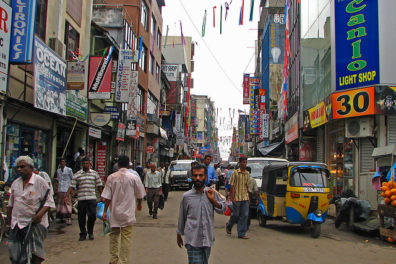What are property taxes?
Broadly, they are taxes on the ownership, occupation or legal transfer of land and buildings. They take many forms, and go under many different names. The most familiar are regular annual charges payable by the owners or occupiers of urban residential or commercial premises. In Britain we call this the Council Tax. Some governments levy taxes on the legal change of property ownership: in Britain these are termed stamp duties. A few national and big-city governments practice what were once know in Britain as betterment levies: they increase property tax charges in localities where large public investments in infrastructure – like new shopping malls, improved transport links – increase the value of nearby residential or commercial premises. In virtually all property tax systems, charges are calibrated according to some measure of the value of individual properties – and often according to other criteria also, including, for example, how many people live there, whether the owner is a widow, a pensioner or a war veteran, or whether the property is rented out or used for commercial purposes.
Viewed from close up, property taxes are diverse and complex. However, a bird’s eye view leads us to two clear and simple conclusions: they are good taxes; and they are under-used. That case is very well made in the most thorough recent review of the British tax system – the 2011 Mirrlees Review produced by the Institute of Fiscal Studies.
Why are property taxes good?
- They distort patterns of economic activity less than virtually all alternative major sources of tax revenue. Property is not mobile, and so cannot be moved around just to avoid tax. Taxing the occupation or ownership of land, houses or buildings generally has positive incentive effects. It encourages people to make the best use of those scarce resources, and not simply to accumulate them.
- Unlike most other taxes, the main burdens fall on more wealthy people.
- They are difficult to evade. Unlike many other assets, land and property cannot easily be hidden from any modestly competent tax authority.
- Almost worldwide, they are the main single actual or potential revenue source for sub-national governments. In historical and comparative perspective, sub-national governments in most of contemporary Africa and Asia – and to a lesser extent Latin America – are grossly under-powered and under-funded. A revival of property tax revenues would almost inevitably signal a resurgence of district, provincial, municipal and metropolitan governments.
Why are property taxes under-used?
Property taxes account for about 2% of GDP in OECD countries, less than 0.7% in developing and transitional economies, and for derisory sums in many low income countries.1 Why so low? And why especially low in low income countries? The answer certainly does not lie in any lack of expertise, research or literature on the subject. We have plenty of all three. Neither does it lie in lack of technology. Digital technologies in general, and GPS (global positioning systems) in particular, recently have made it much easier to locate and record properties and maintain and update property registers.
The most obvious reason for low property taxes is that they are especially likely to stimulate political opposition, in two ways:
- Because property taxes are almost always controlled by urban, local or district governments, local elites are especially well-placed to oppose them – notably by resisting the increased assessments needed to compensate for inflation and by delaying revaluations of properties.
- Most of the tax burdens borne by ordinary people do not require them directly to hand money over to a tax agency. They ‘pay’ the taxes in the sense that taxes reduce their spending power. But someone else actually transmits the money to the tax collector on their behalf. Most personal income and social security taxes are deducted from salary checks and channelled to government by employers; sales and value added taxes are collected mainly by wholesalers and retailers; excise taxes on alcohol, tobacco or fuel are paid to government by producers, importers or wholesalers; and import duties are collected from importers. Property taxes are an exception: taxpayers need either to hand over the cash in quarterly or annual instalments, or make arrangements for their bank to do so. Property taxes are thus very visible. They irritate and upset people even when the sums of money involved are small.
But I don’t think political resistance is the whole story. There is another side to the same coin, especially relevant to developing countries: property taxes have no powerful institutional champions. The international agencies (IMF, World Bank, OECD) and the aid agencies that have contributed to effective national level tax reform in many developing countries have barely touched sub-national/property taxes, for understandable reasons.2 These issues are largely beyond their reach. National level politicians typically are not enthusiastic about helping sub-national governments to a larger share of fiscal resources. And sub-national governments, lacking a good revenue base in property taxes, are generally too weak to champion their own cause. They tend rather to put their energies into trying to obtain larger financial transfers from higher levels of government.
There are success stories about property tax reform in developing countries.3
But they are scattered and local. The people directly involved have few ways of communicating with their peers in other provinces or countries. Success does not easily spread and cumulate. Contrast this with the world of the national and international tax specialists. Here we find a global ‘epistemic community’ of accountants, economists, lawyers, and tax administrators who work in the IMF, the OECD, consultancy companies, transnational auditing and professional services firms (e.g. the Big 4), associations of tax professionals, national tax administrations and ministries of finance. Members of this community meet and communicate with one another frequently, and mainly in English, French or Spanish. Ideas are tested and experiences exchanged. Success travels.
Property taxes need more institutional champions, nationally, regionally and globally. But what would these champions look like, and who will create them?
1 Bahl, R., and J. Martinez-Vasquez. 2008. The Determinants of Revenue Performance. In Making the PropertyTax Work. Experiences in Developing and Transitional Countries, edited by R. Bahl, J. Martinez-Vasquez and J. Youngman. Cambridge MA: Lincoln Institute of Land Policy.
2 See Mick Moore, 2013. Revenue Reform and State-Building in Anglophone Africa.
3 See Govinda Rao, 2013. Property Tax System in India: Problems and Prospects of Reform



